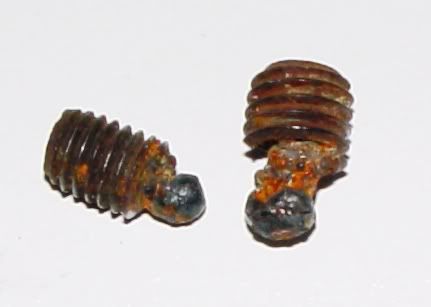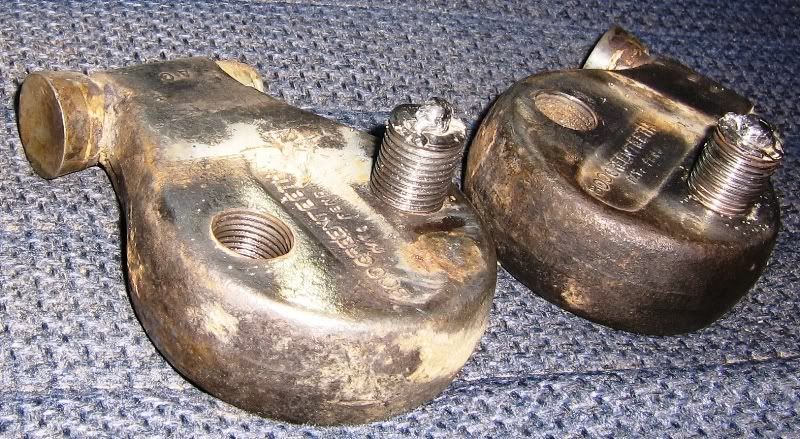Brett, did you ever figure what the problem was??? I would be mad as

after going through all that work and have the same problem resurface, I seen the crane thread you posted and it looks like your chipper is back on the job.
I found it interesting that only the right side of the knife hit the anvil from the pic you posted. In trying to track down our little noise problem I found we don't have a knife to anvil problem plenty of clearance .050 which is about right. But the same right side knife you showed also was a tad tighter on clearance on my machine. I haven't adjusted the anvil yet but the next time we are going to get into this throughly.
After listening to it many times we have came to the conclusion it is not really a metallic tick like a knife hitting the anvil but more of a rattling metal sound tick. Seems to coming from around the bearing area but not the bearing itself.
Backing up in the thread, Steve mentioned an annoying tick and could not find it and tried many ways to isolate it but couldn't find it till a bearing failed. I have talked to our dealer's head mechanic about our little problem and using pry bars to check for slop. He told me that using a pry bar is a waste of time. A bearing will fail long before you would be able to get any play out of it using a pry bar. Visual inspection is best or just plain replacement after a certain length of time.
According to this mechanic there might be some shims in or around the bearing. I didn't quite get what he meant by this or how it could work. Anyway sometimes these move with the bearing and shaft other times they don't and make a noise that comes from the area around the bearing. If this is the case then I don't need to be concerned. I'll find out about this more when we grease the bearings and can tell better what he was talking about.
Darin asked me about anti-seize on the knife bolts. Years ago I would have said yes, but today I am not all that big a fan of anti-seize. In same applications I still use it like on spark plugs and lug bolts but not on chipper or stumper cutter bolts. I prefer to keep them clean and rust free with a wire wheel and use 90 wt gear lube on them and replace them on a regular basis.
I am just going to toss this out here since we are talking chippers and possible bearing failure. This has to do with the power or drive side of the chipper mainly. Keeping proper belt tension prolongs bearing life and is fairly easy to check. How many of you check to see if the clutch pulley and drum pulley are in line using a known straight edge like a 2x4 that isn't warped of course and butt it up against the two pulley's to see that they are in line a and the power belt is running straight???





 after going through all that work and have the same problem resurface, I seen the crane thread you posted and it looks like your chipper is back on the job.
after going through all that work and have the same problem resurface, I seen the crane thread you posted and it looks like your chipper is back on the job.  Ha, I would agree LJ, considering the quality of wood that is sold these days. But , like I said, I would use a known straight edge which could also be a piece of some kind of steel.
Ha, I would agree LJ, considering the quality of wood that is sold these days. But , like I said, I would use a known straight edge which could also be a piece of some kind of steel.